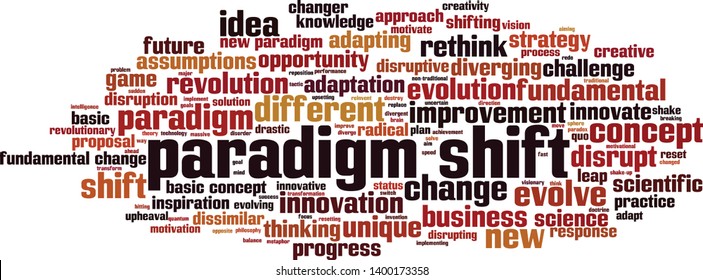Paradigm Shift In A Sentence
Paradigm shift
- List Of Paradigm Examples
- Paradigm Shift Examples In Life
- Paradigm Shift Used In A Sentence
- Use Paradigm Shift In A Sentence

List Of Paradigm Examples
Noun A radical change in thinking from an accepted point of view to a new one, necessitated when new scientific discoveries produce anomalies in the current paradigm. Exact (58) It's a paradigm shift'. The term “paradigm shift” was coined by the American philosopher Thomas Kuhn (1922- 1996). It is one of the central concepts in his hugely influential work, 'The Structure of Scientific Revolutions,' published in 1962. To understand what it means, you first have to understand the notion of a paradigm theory. If you have already established the context, describing the evolution from simple informative messages to annoying spam;-), then you can put a label on that process and refer to it as a 'paradigm shift'. But it would not be a good idea to 'begin the article' by talking about 'the' paradigm shift or even 'a' paradigm shift, if you. A paradigm shift and a broader approach were needed. A paradigm shift in IT services delivery. A paradigm shift is under way.
Paradigm Shift Examples In Life

Paradigm Shift Used In A Sentence

Use Paradigm Shift In A Sentence
A paradigm shift is, according to Thomas Kuhn, in his influential book The Structure of Scientific Revolutions, a change in the basic assumptions, or paradigms, within the ruling theory of science. It is in contrast to his idea of normal science. According to Kuhn, 'A paradigm is what members of a scientific community, and they alone, share'. Unlike a normal scientist, Kuhn held, 'a student in the humanities has constantly before him a number of competing and incommensurable solutions to these problems, solutions that he must ultimately examine for himself'.Once a paradigm shift is complete, a scientist cannot, for example, reject the germ theory of disease to posit the possibility that miasma causes disease or reject modern physics and optics to posit that ether carries light. In contrast, a critic in the humanities can choose to adopt an array of stances, which may be more or less fashionable during any given period but which are all regarded as legitimate. Since the 1960s, the term has also been used in numerous non-scientific contexts to describe a profound change in a fundamental model or perception of events, even though Kuhn himself restricted the use of the term to the hard sciences. Compare as a structured form of Zeitgeist.
